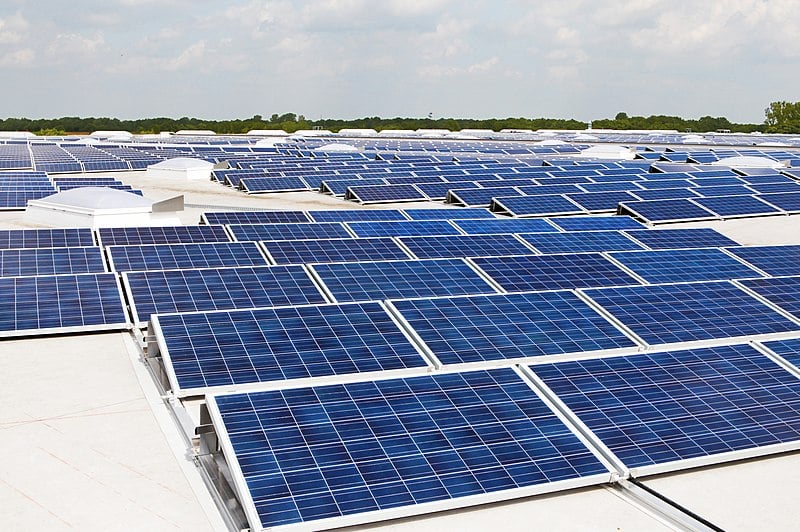Table of Contents
Have you ever considered how you can play a part in the grand scheme of things by switching on your lights? Solar panels could be your contribution to a greener planet. With sustainable energy more crucial than ever, it’s no surprise that solar energy is sitting in the spotlight. So, you’re curious. How exactly do these shiny panels work, and what’s in them for you and the planet?
Let’s face it: we’ve all heard the buzz about renewable energy. It’s like the broccoli of the energy world: we know it’s good for us, but it isn’t always the easiest to digest. Solar panels, for instance, are a crowd-favourite when it comes to sustainable energy solutions.
They soak up the sun’s rays and turn them into clean energy, reducing your carbon footprint and helping you save on that pesky electric bill. But hold on, it’s not all sunshine; there are things to ponder before you plaster your roof with these eco-friendly badges.
Cost, efficiency, and the environment – the triad to think about. The price tag of going solar has dipped recently, making it a palatable option for many. Yet, efficiency can still be a hit or miss depending on good old British weather. Ever wondered about the greenness of green energy?
Interestingly, some solar panels are greener than others, with brands like SunPower and SolarWorld leading the charge in environmentally-conscious production. You’re in the driver’s seat now, with choices that can tip the scales for a cleaner future. Are you ready to flip the switch?
Green Eco Energy Solar Panels
Are you curious about the benefits of solar panels? Well, aside from basking in the warm glow of doing something good for the planet, there are tangible perks to solar power. Let’s take a gander!
Environmental Impact and Sustainability
Did you know by choosing solar panels, you’re helping to combat the climate crisis? It’s true! Solar power:
- Reduces greenhouse gas emissions: Solar Renewable energy Panels generate clean energy, meaning fewer carbon emissions than fossil fuels.
- Mitigates climate change: Lower emissions mean a smaller carbon footprint and a positive step towards slowing down climate change.
- Preserve ecosystems: By reducing our reliance on invasive energy sources like fossil fuels, we protect our natural habitats and wildlife.
Economic Benefits and Job Creation
Going solar isn’t just good for the planet; it also makes cents – quite a few! Here’s why:
- Saves you money on bills: Solar energy can substantially decrease your electricity costs.
- Generates local jobs: The growing green energy sector creates new jobs, and guess what? They’re often local!
- Could increase your house value: Evidence suggests homes with solar installations can fetch a higher resale price.
Energy Independence and Security
Have you ever felt uneasy about your energy supply being at the mercy of market instability? Solar could be your knight in shining armour.
- Provides a reliable power source: With enough sunlight, solar panels can produce a consistent electricity supply.
- Reduces reliance on imports: By generating your energy, you’re not as affected by global fuel market fluctuations.
- Supports energy security: A more distributed energy generation system makes for a robust and reliable energy network.
And there you have it—switching to solar panels is not just a flash in the pan. It’s a step towards greener living and more pocket-friendly energy solutions, and it could even make you feel like a local hero by bolstering the community’s economy and energy independence!
Challenges in Solar Panel Implementation
When considering going green with solar panels, it’s crucial to understand not just the sunnier side but also the challenges that come with it. Let’s shed some light on what you might not see when the solar panels shine.
Resource Extraction and Material Use
Have you ever wondered what it takes to make those shiny solar panels? It all starts with mining for raw materials such as silicon, copper, and silver, which are essential for producing photovoltaic cells. The Silicon Valley Toxics Coalition has raised concerns about the health and environmental impacts of this process. Let’s break it down:
- Silicon: This is the heart of most solar cells, and while it’s abundant, the purification process is energy-intensive.
- Copper and Silver: Essential for conducting electricity, these metals are also finite, with mining operations often leading to environmental degradation.
Technological Hurdles and Efficiency
How effective are your solar panels at converting sunlight into electricity? Different brands like SunPower and SolarWorld have pushed the envelope on performance, but some bumps still exist on the road to efficiency:
- Maximum Efficiency: Currently, even the best solar panels convert around 22-23% of sunlight into power.
- Technological Limits: There’s a constant pursuit for better technology to enhance performance, but we’re still tackling issues like energy storage and the cost of renewable technologies.
Regulatory and Infrastructure Obstacles
Hang on, have you checked the red tape? Before you get those panels up, there’s a whole host of regulations, standards, and infrastructure hurdles to navigate. Here’s what could trip you up:
- Regulations and Standards: Guidelines vary by region, with different hoops to jump through regarding installation and grid connection.
- Infrastructure: The existing power grid isn’t always ready for your solar input, which could curtail your renewable energy dreams.
Remember, knowledge is power—quite literally in the solar world! Understanding these challenges can empower you to make informed decisions for a brighter and greener future.
Looking Towards the Future
As we move forward, understanding the nuances of renewable energy advancements and the global shifts in energy policy is crucial for a sustainable future. Let’s dive in and see what’s in store for green energy, particularly solar panels.
Advancements in Renewable Technology
You might be wondering what innovative breakthroughs are shaping the future of solar energy. Well, solar power, a champion in the realm of green energy, has achieved significant strides.
Firstly, the cost of solar panels has plummeted by over 80% from 2010 to 2021, making it much more accessible for the average Joe. Why does this matter? As prices continue to drop, solar panels are becoming a no-brainer for not just businesses but also for homeowners.
Efficiency is key to this renewable revolution, and advancements don’t disappoint. High-efficiency panels are now entering the market, capable of converting more sunlight into electricity than ever before. This means you get more bang for your buck – or more power for your panel, to be precise.
Global Energy Trends and Policies
Now, let’s talk about the big picture. The International Energy Agency (IEA) has been keeping an eye on the global shift towards clean, renewable power. Their aim? To reach net zero emissions to combat global warming. With Europe at the forefront, countries worldwide are drafting energy policies that favour renewable sources like wind and solar power over fossil fuels.
Why is this no laughing matter? These policies directly affect energy production, aiming to decrease CO2 emissions significantly. You may not be a policymaker, but these changes affect your choices and the environment you live in. Renewable energy sources are not just ‘nice-to-haves’; they’re becoming indispensable tools in fighting the good fight against global warming.
Now, with your newfound knowledge of the future of solar panels and renewable energy, you’re well-prepped to make informed decisions and maybe even spread the word. After all, who wouldn’t want to be on the bright side of a sustainable future?





